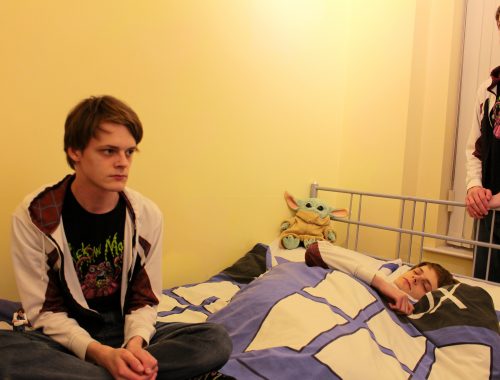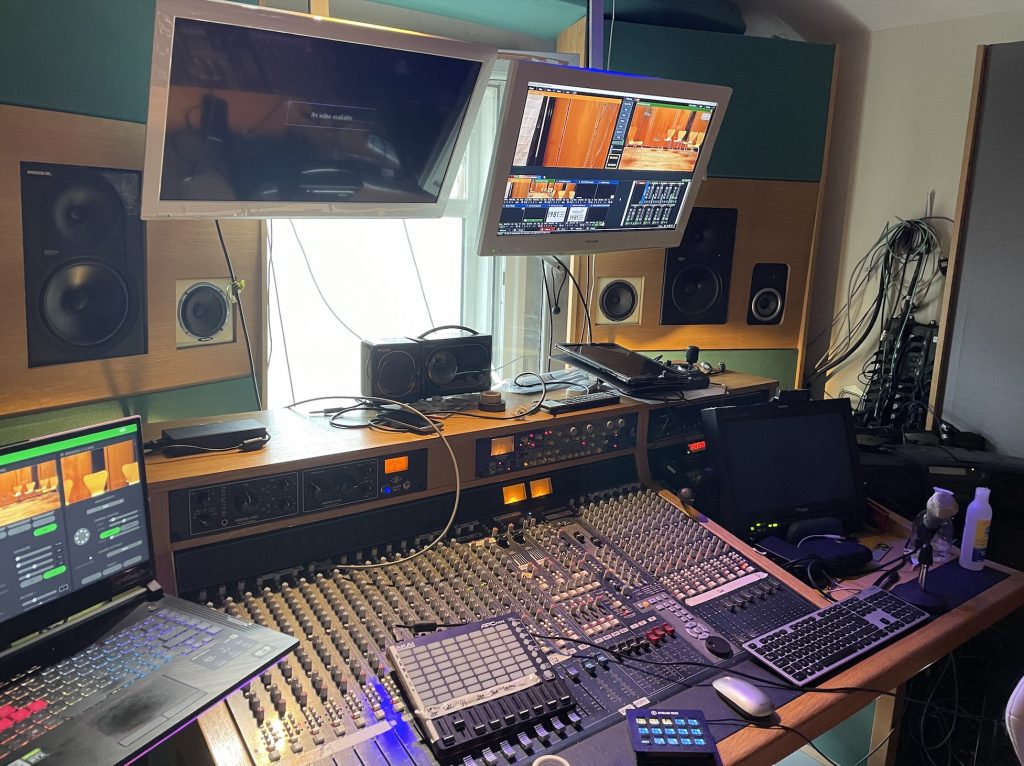There is no such thing as a job in the music industry (it’s a lifestyle)
As the second semester of my second year of study came to a close, my attention was focused on the year ahead and the list of objectives that would come with it. It was at this time that I began my search to secure relevant work placement for AEL3001, which would not only be an enjoyable experience but also beneficial to my relevant areas of study in music and audio production. Luckily, I had done some prior research into the type of work I wished to experience which was that of a recording/mixing engineer in a music recording facility. One such facility which I grew interested in during my research was Redbox Recording Studios in Belfast, which offered a state-of-the-art hub for music production, mastering and post-production; and to my delight after an over the phone informal interview I was invited to come and carry out my placement alongside the studio’s owner Cormac O’Kane, who’s production portfolio and list of associated artists is astronomical as well as fulfilling musical director roles with the BBC, Channel 4 and RTÉ.
“Few music industry posts are actually advertised in regional or national press, so researching the work and output of music companies with one’s employment aims and objectives in mind is paramount”
(Rutter 2016)
Using Gibbs’ reflective cycle, I will give an account of my initial experiences with Redbox Recording as well exploring my thoughts and feelings towards these experiences and making an honest evaluation and analysis of my response to these events in order to understand the experiences better and be more prepared for similar experiences in the future.
“it is not sufficient simply to have an experience in order to learn. Without reflecting upon this experience, it may quickly be forgotten… It is from the feeling and thoughts emerging from this reflection that generalisations and concepts can be created.”
(Gibbs, 1988)

Description:
From my first day in the studio I was given the opportunity to get stuck in straight away with the projects Cormac was working on. These required a lot of hands on work in terms of audio recordings, which I was excited to contribute too for the first time in a commercial setting. These projects included the production of a special programme commemorating the 1981 hunger strike and a conference for the Irish Association for Contemporary European Studies (IACES).To my surprise however, I was also heavily involved in the production and assembly of other forms of complimentary media for these projects such as video, lighting and live stream broadcasts.
Feelings:
During these initial projects I experienced a range of different emotions. For the most part these were positive emotions and I thoroughly enjoyed these new experiences that I had been trusted to contribute too, which in turn gave me a huge confidence boost and a sense of fulfilment when the final projects had been released. On the other hand, I did experience some negative emotions such as when I had to work out of my comfort zone or work in stressful, high-pressure situations on occasion, which could take up a lot of my free time.
Evaluation:
In many ways these experiences where often double-edged in terms of positive and negative aspects. The challenges I have faced thus far during my placement arose quite early on in the process; such as working a lot of unsociable hours including late nights and early mornings in succession, as well as working in other media forms such as filming/video editing and learning how to operate new equipment and software to a professional standard both in the studio and on location. However, these where greatly outweighed by the positives of gaining valuable hands-on experience, working alongside a number of critically acclaimed industry professionals and also working on genuinely interesting and enjoyable projects.
“It is important to understand the way in which industry roles fit together, how peripheral services to the music industry manifest themselves and exist, in order to trace new employment opportunities.”
(Rutter 2016)
Action Plan:
Moving forward with my placement and even further into work post-study, I have many plans and ideas to keep in mind when undertaking projects of a similar nature to those I have experienced so far at Redbox Recording. Firstly, I will not be afraid to step outside of my comfort zone and learn new skills which will in turn make me more employable over time, while I also widen my understanding of associated industries/practices such as lighting application. Additionally, I will improve my communication skills further as I now recognise how important it is to communicate clearly especially when working as part of a team. Finally, in a post university situation, I understand the importance of lending as much time as possible to these types of production projects in order to obtain the best results and a successful end product to be proud of.
“It should be established at the outset that roles carried out in the music industry and their connected freelance occupations do not fall within regular day times hours; the message from music industry employers and moguls is clear: if you want a job, go and get a job; working in the music industry is not a job – it’s a lifestyle.”
(Rutter 2016)
Bibliography:
- Gibbs, G. (1988). Learning by Doing:A Guide to Teaching and Learning Methods. Oxford Centre for Staff and Learning Development, Oxford Brookes University.
- Jasper, M. (2013). Beginning Reflective Practice. Melbourne & London: Cengage Learning.
- Rutter, P. (2016). The Music Industry Handbook. Taylor & Francis.
You May Also Like

Assumption – the Parent of Confusion
24 November 2021
Facing Avoidance
26 November 2021




